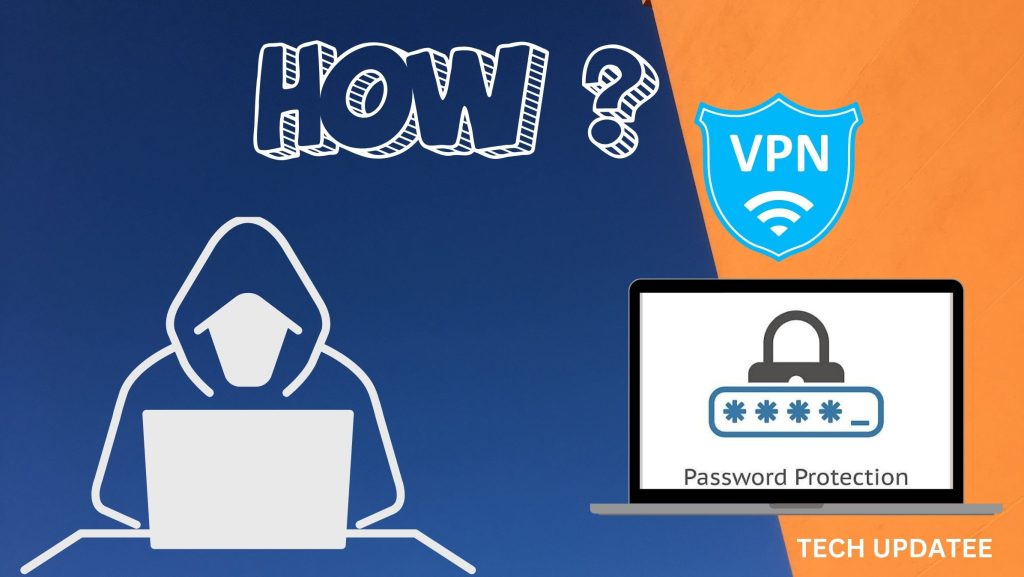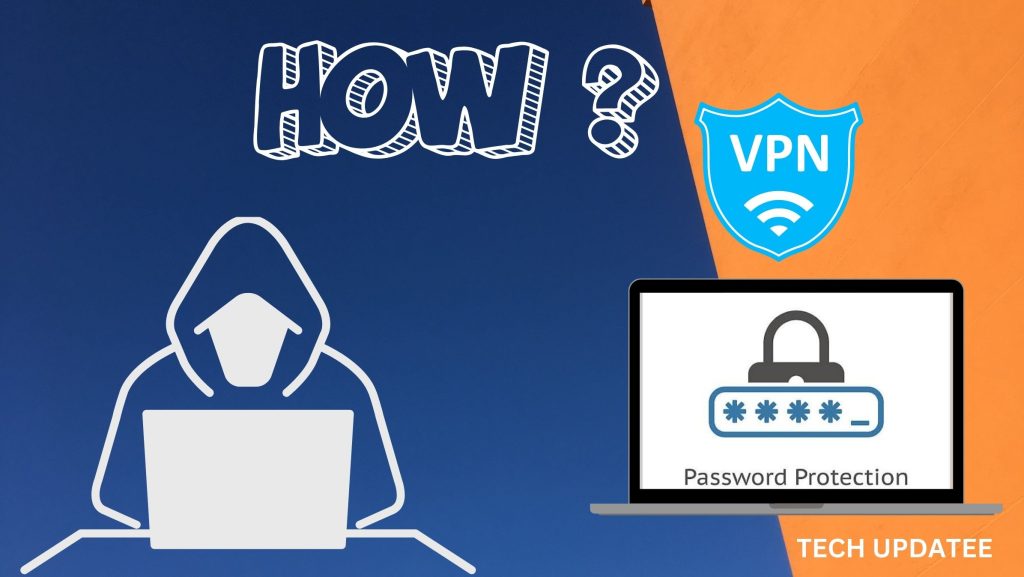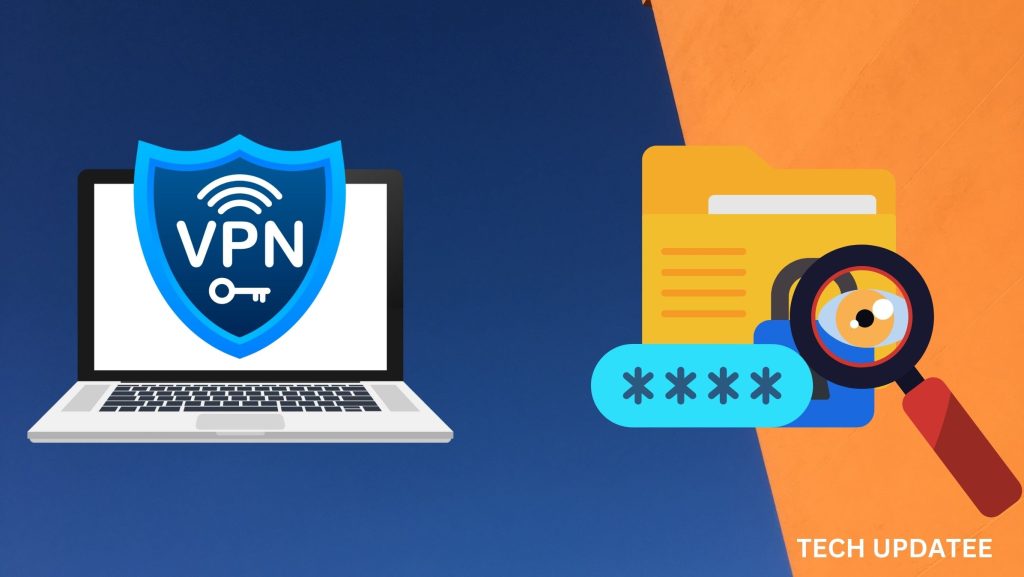Can VPN Be Hacked Your data should be secure, and a VPN should shield you from dangers like hackers. Is it possible for VPNs to be compromised? We examine this query and offer advice on how to keep secure.
An encrypted tunnel is established between your device and the VPN server when you utilize a Virtual Private Network (VPN) service. Your IP address and browsing history are among the data that hackers and snoopers cannot view because all of your internet traffic passing through this tunnel is secured. However, this still necessitates some level of confidence that the VPN service is appropriately encrypting your traffic and taking the required precautions to protect your data.
This article will discuss the dangers of VPN hacking, how it can happen, and what to do if it happens.
Contents
Can VPN Be Hacked

The fact is that a VPN can be hacked, but provided it uses a strong VPN protocol with a high level of encryption, this is highly unlikely. The best VPNs on the market use trusted, open-source VPN protocols such as OpenVPN and WireGuard. This, combined with 256-bit AES or ChaCha20 encryption, makes it extremely difficult for attackers to decrypt data, making a hack all the more unlikely as a result.
There are a few ways in which a VPN could be hacked, albeit not easily done, particularly if the VPN has a high level of security. Here are how this could happen:
- Vulnerability in VPN software
- Poor encryption standards
- Man-in-the-middle (MitM) attack
- DNS hijacking
- IP leaks
- Server seizure
Let’s first look at how a VPN operates before delving more into these dangers. All of your internet traffic passes through the VPN’s encrypted tunnel on its way to and from the VPN server when you connect. To decrypt this data, an attacker would have to either acquire the encryption key or use a brute-force attack.
When data is not passing through the VPN tunnel, it is more susceptible to hacking efforts. This occurs when the data is received by the VPN server, decrypted, and sent to the website or service you are attempting to access. The opposite also occurs when the website returns the requested data to the VPN server.
How can a VPN be hacked?

Hacking a VPN is difficult and takes a lot of skill and work. Numerous elements affect a VPN’s security, such as the encryption standards, security procedures, and VPN protocols it employs. Here are a few ways that a hack could undermine a VPN:
Vulnerability in VPN software
VPN software may have flaws, just like any other program. These problems may be caused by a bug in the VPN protocol or by the VPN software itself (either on the client or server side). Vulnerabilities can be anything from small problems that barely affect you as a user to serious defects that could jeopardize the security and privacy of your data.
OpenVPN and WireGuard are notable for their robust security features among the many VPN protocols. However, it is well known that older protocols, such as PPTP, are more susceptible to attacks. Because cyber threats are constantly changing, VPN companies must patch and upgrade their software frequently to protect against emerging vulnerabilities. Making sure your VPN software is kept up to date is another way that you, as a user, contribute.
Poor encryption standard
Readable data is transformed into an encoded format through encryption, which requires a special key to decode. Data exchanged between your device and the VPN server is encrypted by a VPN, making it unreadable by unauthorized parties even in the event that it is intercepted. This is obviously crucial for safeguarding data, including private communications, financial information, and personal information.
Strong encryption should be used by a VPN. Failure to do so exposes data to decryption, whether due to antiquated encryption techniques or an inadequate key length. Strong encryption methods like AES-256 are used by trustworthy VPN companies, and their keys are long enough to withstand brute-force attacks.
DNS hijacking
By rerouting DNS requests—the system that converts domain names into IP addresses—from their intended destination to a malicious server under their control, an attacker can engage in DNS hijacking. If DNS requests are not securely routed through the VPN’s tunnel, users may still be vulnerable even if their internet traffic is encrypted.
Attackers can divert users to phoney websites that are designed to look authentic by intercepting DNS requests, which could result in data theft. This is the reason you should only use a VPN that offers DNS leak protection, which encrypts and secures all DNS queries. This guarantees that they are concealed from both snoopers and hackers. To further safeguard searches, several VPNs use encrypted DNS protocols and their own DNS servers.
IP leaks
IP leaks happen when websites or services you visit while using a VPN inadvertently reveal your true IP address. It goes without saying that this compromises the privacy that the VPN is meant to offer. Software bugs, incorrectly configured network settings, or improper VPN security of IPv6 traffic can all result in leaks.
If a VPN connection fails, it should have a kill switch capability that automatically stops internet traffic. By doing this, no data is transferred over the unprotected connection. Additionally, by restricting IPv6 traffic or directing it through the VPN tunnel, VPNs can impose IPv6 leak protection.
Credential theft
Attackers can gain access to a VPN and intercept or alter private information if their credentials are taken. However, if the VPN uses perfect forward secrecy, the risk is minimal. It indicates that a different encryption key is used for every session. An attacker cannot decrypt previous or subsequent sessions, even if they manage to get their hands on the session’s keys.
In order to get access to a system, hackers may also buy or steal VPN login credentials.
Port forwarding
Port forwarding speeds up torrenting and enables remote access to devices on a private network. As the packets transit via a gateway, like a router or firewall, it functions by rerouting communication requests from one address and port number to another. On the other hand, improperly setup port forwarding may allow hackers to access your device.
Split tunneling
You can select which particular internet traffic is routed through the VPN connection and which traffic avoids it and connects to the internet directly when you use split tunneling. If this feature is not used correctly, there are risks. The unencrypted, non-VPN traffic could be used by an attacker to access a device. Although this doesn’t directly jeopardize the VPN connection, it might enable an attacker to access private data via compromised devices.
Server seizure
Server seizures are a serious concern that could result in authorities or malevolent actors gaining physical control over VPN servers, whether through legal or illicit means. User data may be exposed as a result, especially if the VPN operator hasn’t taken the necessary security measures. VPN services use a variety of security techniques to protect against the hacking dangers that come with server seizure.
A VPN should specifically have a no-logs policy in place to guarantee that no user activity or connection data is discovered, even in the event that a server is taken over. Furthermore, diskless (RAM-only) servers—where all data is kept on volatile memory that is cleared upon server restart—are becoming more and more popular for VPNs. Selecting a VPN that functions in a nation with robust privacy regulations, like Switzerland, lowers risk even more.
VPN hacks and vulnerabilities

So we now know some of how a VPN can be hacked. Here are a few more specific examples of VPN hacks and the vulnerabilities they targeted:
Fortinet
A path traversal vulnerability (CVE-2018-13379) in Fortinet’s FortiOS SSL VPN was exploited by attackers in 2020. By using specifically constructed HTTP resource requests, the vulnerability enabled attackers to download system files. Fortinet VPN usernames and passwords totaling thousands were hacked and made public online.
NordVPN
In 2018, NordVPN experienced a security issue that was finally made public in 2019. Unauthorized access to one of NordVPN’s servers was caused by a data center provider’s unsecure remote administration system. Thankfully, no other NordVPN servers or data were affected. An expired TLS key that the attacker obtained might have been utilized to launch a man-in-the-middle (MITM) attack on a single user.
Pulse Secure
Attackers took advantage of several flaws in Pulse Secure VPN appliances in 2019 and 2021. These included the buffer overflow vulnerability CVE-2021-22893 and the arbitrary file reading vulnerability CVE-2019-11510.
Because of these vulnerabilities, attackers were able to run arbitrary code and keep access to the compromised systems. The Cybersecurity and Infrastructure Security Agency (CISA) released warnings and mitigation guidance due to the vulnerabilities’ seriousness.
What happens if a VPN is hacked?
The repercussions of a VPN attack or penetration differ according on the type of vulnerability that was exploited. Another determining aspect is the hacker’s goals. The following are a few possible outcomes:
- Privacy loss: By encrypting your data and concealing your IP address, a VPN should, of course, safeguard your privacy. Your IP address and even your surfing history could be compromised, though.
- Data theft: Sensitive information, including passwords, bank account information, and private correspondence, may be taken if an attack permits data interception.
- Attacks by a man in the middle: A highly experienced hacker might put oneself in the way of the user and the VPN server, giving them the ability to intercept, reroute, or even alter data.
- Account compromise: If the VPN’s login information is taken, hackers may be able to access your account without authorization. They might then mimic you or spy on your activities.
- Phishing and malware: If VPN software is compromised, it may be used to spread phishing or malware, which would result in even more security problems.
What to do if your VPN is hacked
If you suspect that your VPN has been hacked, you must take immediate action to secure your data and prevent damage. Here’s what you need to do:
- Disconnecting from your VPN is the first step in stopping more data exposure.
- Change the password for your VPN account and any other accounts you think might be hacked. Make sure your passwords are strong and distinct.
- Turn on multi-factor authentication (MFA) to add an additional degree of protection to your accounts.
- Make sure your VPN client is current. Install any patches or updates that could fix security flaws.
- Check your VPN account for any odd activity or changes to the settings. This includes unknown IP addresses or brand-new or unidentified gadgets.
- To be sure that no harmful software has been installed, run a thorough scan of your devices with a reliable antivirus product.
- Watch your other accounts for indications of illegal activity. This covers your email and bank accounts as well as any other services you frequently use.
- You might think about switching VPN providers if you think the hack was caused by a security flaw in your current one. You might want to check out our top VPNs for this.
Conclusion
A VPN can boost your online security, but it is not totally hack-proof. While robust encryption secures your data, weaknesses like poor protocols, DNS leaks, or corrupted VPN providers can expose users to hazards. Hackers may potentially target VPN software with viruses or exploit security weaknesses. Choosing a secure VPN with AES-256 encryption, a no-logs policy, and multi-factor authentication dramatically minimizes the possibilities of getting hacked. Additionally, keeping your VPN software updated and utilizing strong passwords helps security. While a VPN is a great tool for privacy, it should be used with other cybersecurity measures for optimal protection.
FAQs
Does hacking of VPNs happen frequently?
Because of their strong encryption standards and comprehensive security procedures, trustworthy VPNs are relatively rare to be hacked. Less secure or badly maintained VPN services are more likely to have vulnerabilities. Even while trustworthy VPNs are typically dependable when it comes to protecting your data, it’s still crucial to stay vigilant and update your software.
How can I tell if my VPN has been compromised?
Unusual and frequent disconnections and reconnections, a discernible drop in connection speeds, failed IP or DNS leak checks, and unauthorized changes to your VPN account settings are some indicators that your VPN may have been compromised. However, keep in mind that there may be alternative explanations for all of the aforementioned, so it’s always worthwhile to look into these matters before drawing any judgments.
How can I pick a VPN that is secure?
Look for a VPN that uses the newest and most secure protocols, including OpenVPN and WireGuard, together with sophisticated encryption, like AES-256. Your VPN should have a no-logs policy, meaning that no user information is ever logged. To validate their security and privacy claims, several VPN companies submit to independent audits on a regular basis. Double VPN servers and a kill switch are two more desirable security features.
Is hacking prevented by using a VPN?
A VPN can lessen the chance of some hacking techniques, such data interception on unprotected wifi networks, by encrypting your connection. Additionally, a VPN conceals your IP address, adding another degree of privacy to your online activities. Despite all of this, a VPN by itself cannot defend you from online threats. Additionally, it’s critical to utilize two-factor authentication, create strong passwords, and keep your software updated.
